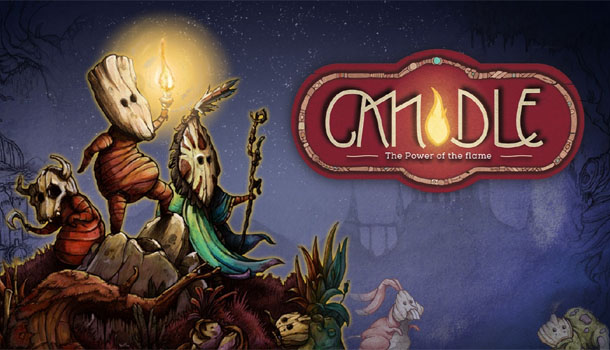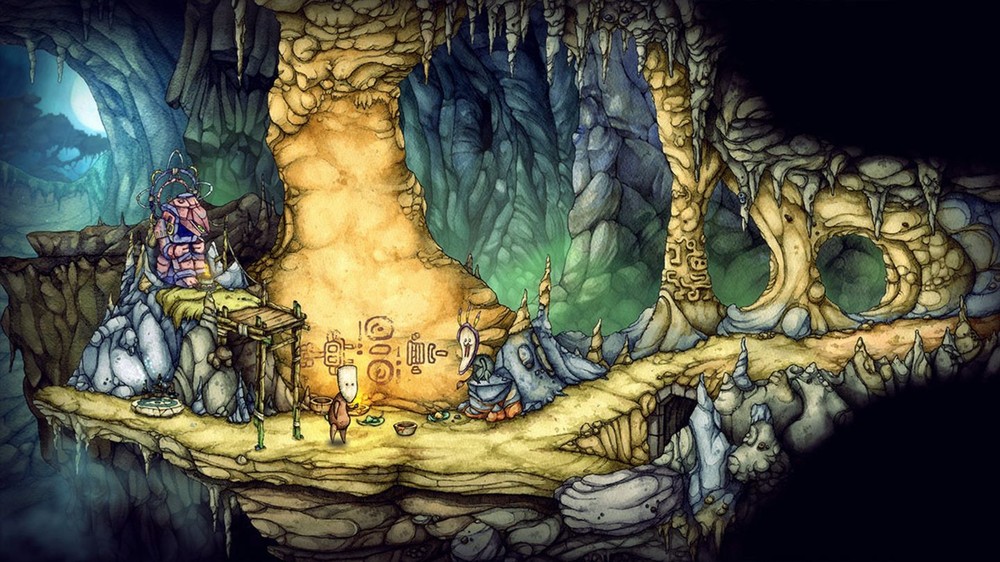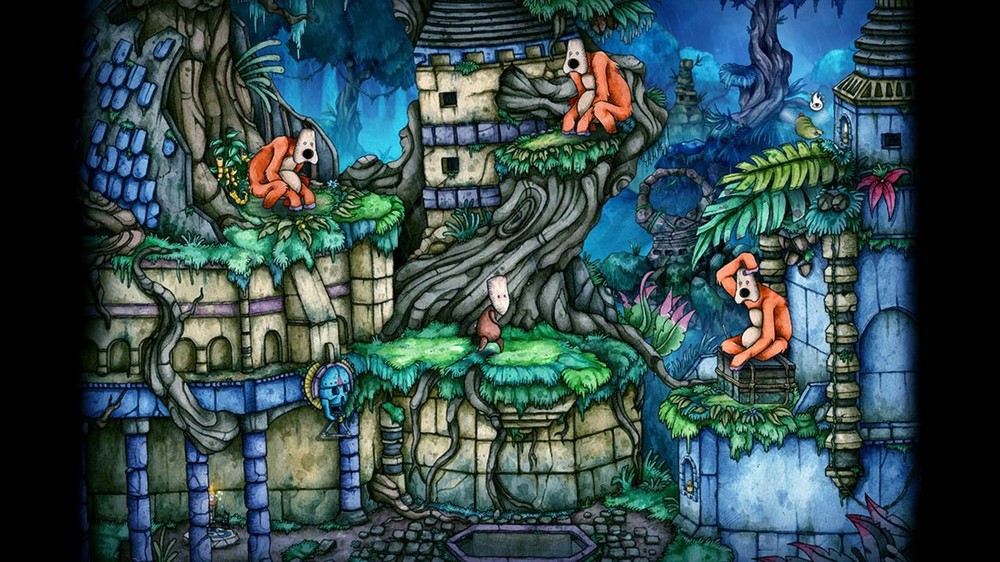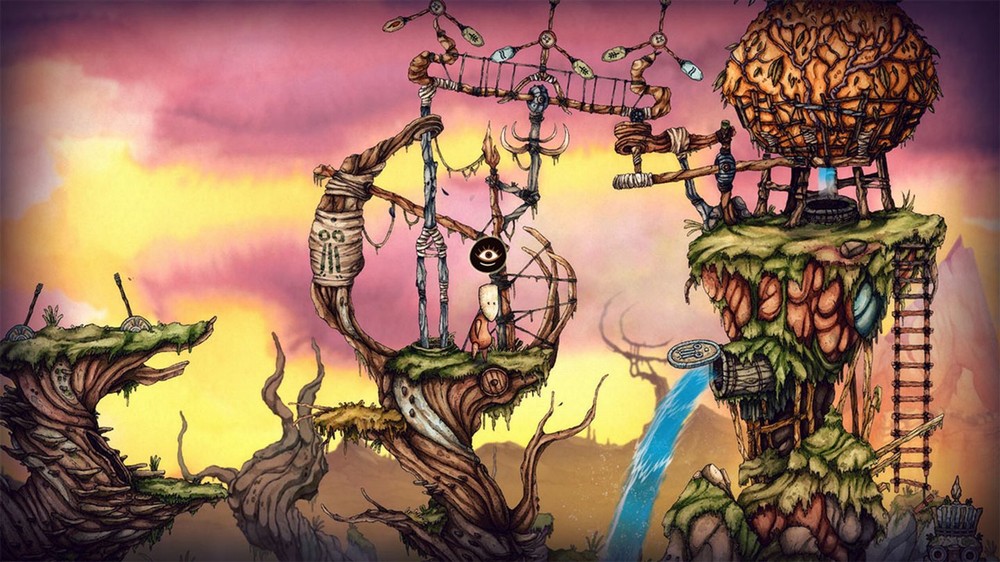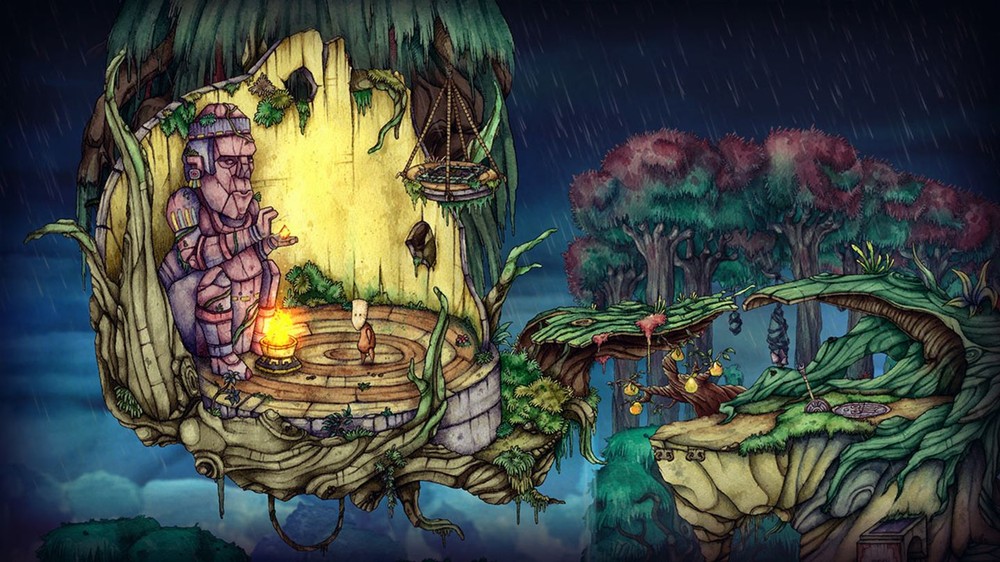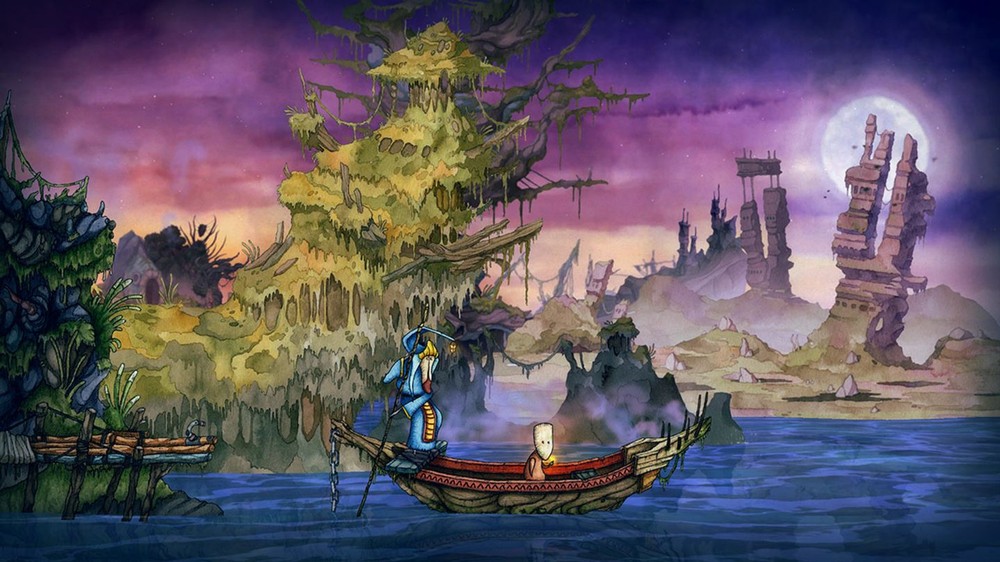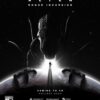Though each year brings us further and further from the muted greys and browns that surrounded gaming around 2010, it’s still fairly uncommon to find a title that has a truly distinctive and unique art style. You’ll get games that are attempting to be a photorealistic as possible, those trying to hark back to the SNES era, or cynical attempts to include as many bright colors as possible to draw in a younger crowd. Candle: The Power of the Flame, though, is presented in a way rarely seen outside of the best-illustrated storybooks, with hand-drawn watercolor environments creating a truly extraordinary world to explore. With South American inspiration, and a puzzle-adventure style, Candle presents an experience not often found on consoles.
In Candle, you play a Teku, a tribe member left behind when a rival group kidnaps the rest of his tribe. By traversing the surrounding lands, you’re tasked with finding your tribe’s shaman, using your own wits and the power of fire to overcome many different obstacles. The Power of the Flame is perhaps most closely compared to 2D point-and-click adventures, where you pick up various objects in the world, and use them, or a combination of objects, to progress through different areas and advance the story.
Point-and-click adventures often turn me off, particularly some of the more eccentric examples, as they often require leaps of logic that seem to rely more on combining every item in your inventory to find something that works, rather than using genuine intuition to overcome a puzzle. I thankfully didn’t find Candle to do this, however, and though there were definitely puzzles that had me stumped, once I had figured out the solution, they always made sense, and never left me frustrated. The only characteristic of the game that I did find a little annoying, though, was when the developer took inspiration from games such as Limbo, and had seemingly mundane objects in the environment suddenly spring to life and instantly kill your character. Death isn’t too punishing thankfully, so this wasn’t as much of a problem as it otherwise could have been.
Puzzles in Candle vary from environmental, where you’re combining items with objects in the world, to puzzles where you’re giving a particular task to solve on its individual screen. One early example of this is where you’re given a locked box to open, and the way to open it is to organize a series of figures so that they tell a story in the correct order. Having these two types of puzzles helps to break up the flow of gameplay, and allows you to use different problem solving techniques to progress. It’s an interesting way of keeping the variety of puzzles high, and gives you the chance to approach the game from a different angle if a particular aspect is frustrating you or has you stumped.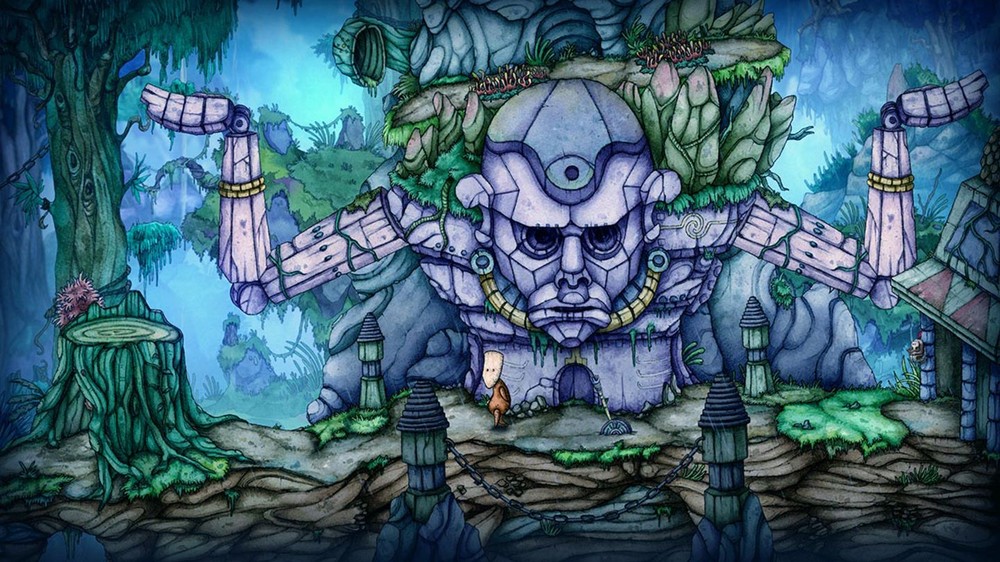
Candle: The Power of the Flame is a fairly lengthy experience, with three acts to work through. Obviously, the time required to finish the game will depend heavily on how successful you are with the puzzles, but there’s certainly enough content here, and enough of a brain workout, to keep even the most ardent puzzle fan satisfied for a few hours. Some players may find the pace of the game a little too slow for them, with a lot of backtracking and exploration required, but that’s the nature of the genre, and as mentioned earlier, at least Candle follows a general train of logic with its puzzles.
Candle: The Power of the Flame is a nice break from the usual stream of games released on consoles. It’s a slow-paced, meditative experience, and while it does require a decent amount of brainpower, it never really pressures the player, and often allows you to devise solutions at your own pace and in your own time. It’s beautifully presented, too, with a fascinating art style and a lovely use of color. If you’ve been looking for a puzzle game that you can play on your television, or just want a bit of a break from what you usually play, then you could definitely do a lot worse than give Candle: The Power of the Flame a try.

